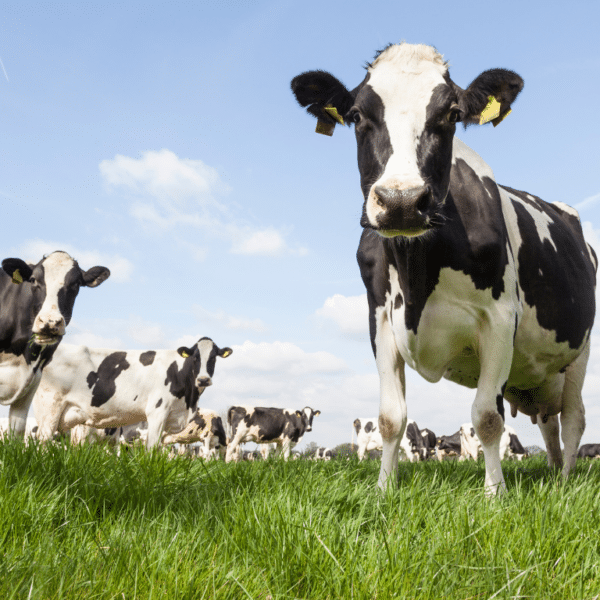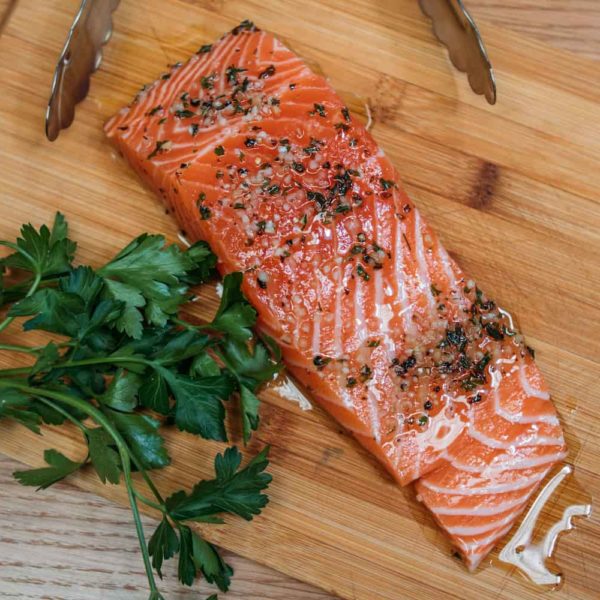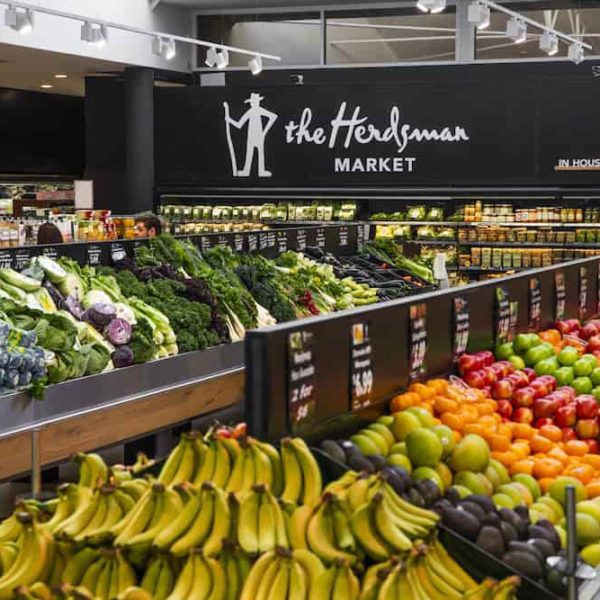April is a fantastic time to explore what seasonal produce Perth has to offer. With a bounty of fresh fruits, vegetables, and herbs, this month invites you to enjoy the vibrant flavours and health benefits of eating locally sourced food. Whether you’re a seasoned cook or just starting out, there are plenty of ways to incorporate these delicious ingredients into your meals. Let’s take a closer look at what’s in season and how you can make the most of it!
Key Takeaways
- April brings a variety of fresh fruits like strawberries and pears.
- Vegetables such as asparagus and radishes are at their best this month.
- Eating seasonal produce enhances flavour and supports local farmers.
- Simple recipes can help you enjoy these ingredients, like fruit salads and veggie soups.
- Shopping at local markets like Herdsman Market ensures you get the freshest produce.
Exploring April’s Seasonal Produce in Perth
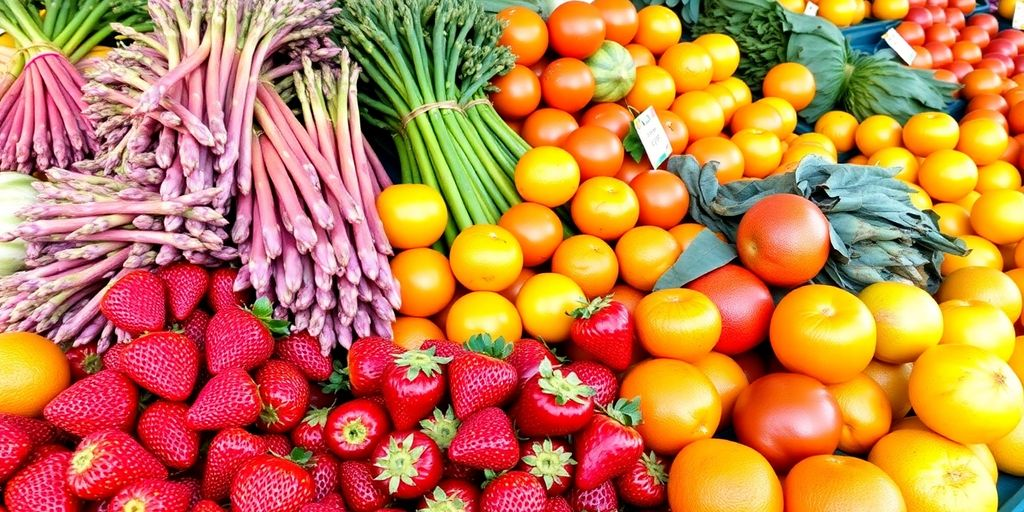
April in Perth is a fantastic time for seasonal produce Perth. The weather is usually mild, making it perfect for enjoying the fresh flavours that are on offer. Let’s take a look at what you can expect to find at the Herdsman Market this month.
Fruits Available This Month
April brings a bounty of delicious fruits to Perth. You’ll find that many fruits are at their peak flavour during this time. So, what fruits should you be looking for?
- Apples: Crisp and juicy apples are in abundance. Perfect for snacking or baking.
- Pears: Sweet and succulent pears are also in season. Try them in salads or desserts.
- Grapes: A variety of grapes are available, from green to red, offering a burst of flavour.
Don’t forget to check out local varieties, as they often have unique tastes and textures that you won’t find elsewhere. Buying local also supports our farmers!
Vegetables to Look Out For
Vegetables are also thriving in April. The cooler weather is ideal for growing a range of tasty veggies. Here are some of the best vegetables to look out for this month:
- Broccoli: This nutritious vegetable is perfect for roasting, steaming, or adding to stir-fries.
- Cauliflower: Similar to broccoli, cauliflower is versatile and can be used in many dishes.
- Spinach: Fresh spinach is readily available, great for salads, smoothies, or cooked dishes.
Herbs and Spices in Season
Herbs and spices can really elevate your cooking, and April offers a great selection. What herbs and spices are at their best right now?
- Mint: Refreshing mint is perfect for adding to drinks, salads, or desserts.
- Parsley: This versatile herb can be used in almost any dish to add a fresh, green flavour.
- Rosemary: Aromatic rosemary is great for roasting meats or vegetables. You can find Exmouth Large Cooked Tiger Prawns at the market to pair with these herbs.
Remember to buy fresh, local herbs whenever possible for the best flavour. They make a huge difference in your cooking!
Benefits of Eating Seasonal Produce
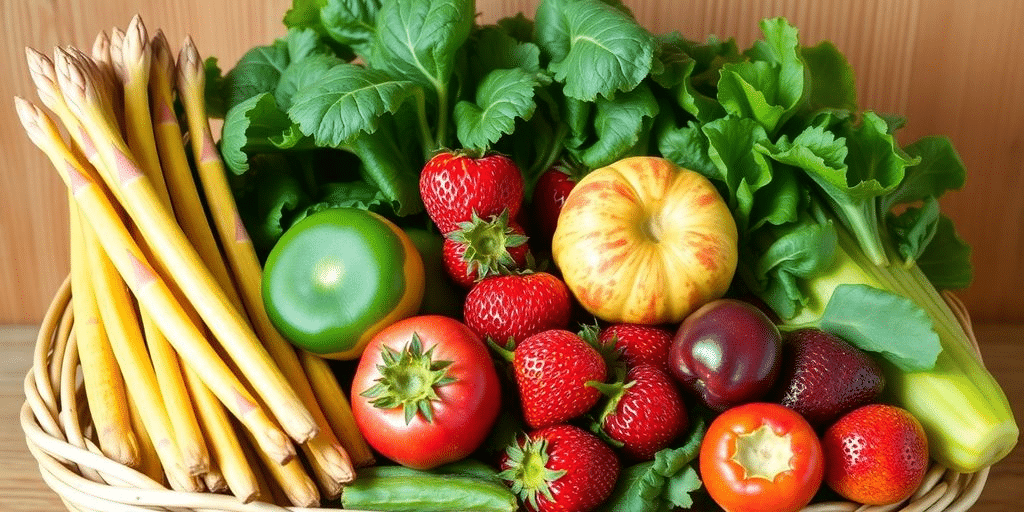
Enhanced Flavour and Freshness
Let’s be honest, does anything beat the taste of a perfectly ripe strawberry in the middle of summer? That’s because seasonal produce is picked at its peak, meaning maximum flavour. When fruits and veggies are allowed to ripen naturally, they develop a depth of flavour that you just can’t get from produce that’s been shipped halfway across the world. Think about it: a tomato grown in your backyard in summer versus one bought in winter – the difference is night and day! Plus, fresher produce means it hasn’t lost nutrients sitting in storage or during transportation. It’s a win-win.
Nutritional Advantages
Did you know that seasonal produce often packs a bigger nutritional punch? When fruits and vegetables are harvested at their peak ripeness, they tend to have higher levels of vitamins, minerals, and antioxidants. This is because they’ve had the optimal conditions to develop all those good-for-you compounds. For example, spinach grown in its peak season might have more vitamin C than spinach grown out of season. So, by eating seasonally, you’re not just getting tastier food, you’re also getting more nutritious food. It’s like giving your body a little boost with every bite.
Supporting Local Farmers
One of the best benefits of buying seasonal produce is that you’re directly supporting your local farmers and community. When you buy seasonal, you’re more likely to be buying from local growers who are passionate about what they do. This helps to keep money in your local economy, creates jobs, and supports sustainable farming practises. Plus, you get to know the people who grow your food, which is pretty cool. It’s a great way to connect with your community and feel good about where your food comes from.
Eating seasonally is more than just a trend; it’s a way to reconnect with nature’s rhythm and support a healthier, more sustainable food system. It’s about appreciating the unique flavours and nutritional benefits that each season has to offer, and making conscious choices that benefit both our bodies and our planet.
Here are some ways you can support local farmers:
- Shop at farmers’ markets.
- Join a CSA (Community Supported Agriculture) programme.
- Look for locally grown produce at your supermarket.
- Visit farm stands and pick-your-own farms.
Delicious Recipes Featuring April Produce
Simple Fruit Salads
April in Perth brings a bounty of delicious fruits perfect for refreshing salads. Think about combining the sweetness of pears with the slight tang of persimmons. A simple dressing of lemon juice and honey can really bring out the natural flavours. For an extra touch, consider adding some toasted nuts or a sprinkle of mint.
Here’s a basic template to get you started:
- Base: Mixed greens (rocket, spinach, lettuce)
- Fruits: Sliced pears, persimmons, maybe even some late-season grapes
- Extras: Toasted walnuts, crumbled feta (optional), fresh mint
- Dressing: Lemon juice, honey, olive oil, salt, and pepper
Experiment with different combinations to find your favourite. Don’t be afraid to add a little spice with a pinch of chilli flakes or some fresh ginger.
Hearty Vegetable Soups
As the weather starts to cool down, a warm bowl of soup is just the ticket. April’s seasonal vegetables like asparagus, potatoes and parsnips are ideal for creating hearty and nutritious soups. Roasting the vegetables before blending them can add a depth of flavour. Consider adding some herbs and spices to elevate the taste. What vegetables are in season in April?
Here’s a simple recipe idea:
- Roast chopped potatoes, parsnips, and asparagus with olive oil, salt, and pepper.
- Sauté onion and garlic in a pot.
- Add the roasted vegetables to the pot with vegetable broth.
- Simmer until the vegetables are tender.
- Blend until smooth and season to taste.
Creative Herb-Infused Dishes
April is a great time to experiment with fresh herbs. They can add a burst of flavour to all sorts of dishes. Think about using rosemary with roasted potatoes, thyme with grilled chicken, or parsley with a simple pasta dish. You can even infuse oils and vinegars with herbs for a longer-lasting flavour boost. Fresh herbs can transform a simple dish into something special.
Here are some ideas:
- Herb-infused oil: Combine olive oil with rosemary, thyme, and garlic in a jar. Let it sit for a few weeks, then use it for cooking or drizzling.
- Herb butter: Mix softened butter with chopped parsley, chives, and garlic. Use it on bread, vegetables, or grilled meats.
- Herb marinade: Combine olive oil, lemon juice, garlic, and your favourite herbs (like oregano, basil, or mint) to marinate chicken, fish, or vegetables.
Sustainable Eating Practises
Reducing Carbon Footprint
Eating seasonally is a simple way to shrink your carbon footprint. Think about it: when you buy produce that’s in season locally, it hasn’t travelled thousands of kilometres to get to your plate. That means less fuel used for transportation, and fewer emissions released into the atmosphere. It’s a win-win!
- Choose locally grown produce whenever possible.
- Look for farmers markets or farm stands in your area.
- Consider starting your own veggie patch, even if it’s just a few herbs in pots.
Minimising Food Waste
Food waste is a massive problem, but eating seasonally can help. When you’re buying produce at its peak, you’re more likely to use it all up before it goes bad. Plus, seasonal recipes often encourage you to use the whole ingredient, from root to stem.
Planning your meals around what’s in season can really cut down on waste. If you know you’ve got a glut of zucchini, for example, you can find heaps of recipes to use it up before it ends up in the bin.
- Plan your meals around what’s in season.
- Store your produce properly to extend its shelf life.
- Get creative with leftovers – turn them into soups, salads, or stir-fries.
Choosing Organic Options
Opting for organic produce is another great way to eat more sustainably. Organic farming practises avoid synthetic pesticides and fertilisers, which can harm the environment and our health. While organic can sometimes be a bit pricier, the benefits are worth it.
Supporting organic farmers helps to promote healthier ecosystems and protect our waterways.
- Look for certified organic labels when shopping.
- Visit farmers markets where you can talk directly to the growers about their practises.
- Consider joining a local Community Supported Agriculture (CSA) programme to get a regular supply of fresh, organic produce.
Shopping at Herdsman Market
Herdsman Market is a Perth institution, and knowing how to shop there can really make a difference to your seasonal eating journey. It’s more than just a local food market; it’s an experience. Here’s what you need to know.
What to Expect at the Market
Walking into Herdsman Market is a feast for the senses. You’ll find a huge range of fresh produce, from everyday staples to more unusual and exotic items. It can get busy, especially on weekends, so be prepared for a bit of a crowd. The atmosphere is bustling and friendly, with vendors who are passionate about their products.
- A wide variety of fruits, vegetables, meats, and specialty items.
- A vibrant and energetic atmosphere.
- Knowledgeable vendors who can offer advice and tips.
Tips for Selecting Fresh Produce
Choosing the best produce is key to enjoying seasonal eating. Here are a few pointers:
- Look for vibrant colours and firm textures.
- Smell the produce – ripe fruits and vegetables should have a pleasant aroma.
- Don’t be afraid to ask the vendors questions about where the produce comes from and how long it’s been on display.
Consider bringing your own reusable bags to reduce plastic waste and make your shopping experience more sustainable.
Supporting Local Vendors
One of the best things about shopping at Herdsman Market is the opportunity to support local farmers and producers. By buying directly from them, you’re not only getting fresher, tastier produce, but you’re also helping to sustain the local economy. Many vendors are happy to share the story behind their products, giving you a deeper connection to your Christmas Feast.
Storing and Preserving Seasonal Produce
So, you’ve hit up Herdsman Market and scored some amazing seasonal produce. Now what? Let’s talk about keeping that goodness fresh and making it last.
Best Practises for Freshness
Okay, first things first: how you store your fruits and veggies makes a HUGE difference. Here’s the lowdown:
- Separate your ethylene producers: Some fruits (like apples and bananas) release ethylene gas, which speeds up ripening. Keep them away from other produce to prevent premature spoilage. I usually keep my apples in a separate bowl on the counter.
- Proper refrigeration: Most veggies love the fridge, but not all in the same way. Leafy greens do best in a plastic bag with a slightly damp paper towel. Root vegetables like carrots and potatoes prefer a cool, dark place (the pantry works well).
- Don’t wash everything at once: Washing produce before storing can actually encourage mould growth. Only wash what you’re about to use. Trust me, I learned this the hard way with a whole container of slimy strawberries.
Freezing and Canning Techniques
Want to enjoy that April asparagus field mushrooms in the middle of winter? Freezing and canning are your best mates. Here’s a quick rundown:
- Freezing: Blanching vegetables before freezing helps preserve their colour and texture. For fruits, consider freezing them in a single layer on a baking sheet before transferring them to a freezer bag to prevent clumping. I always freeze my berries this way – so much easier to grab a handful for smoothies!
- Canning: Canning is a bit more involved, but it’s a great way to preserve things like tomatoes and jams. Make sure you follow a tested recipe and use proper sterilisation techniques to avoid any nasties. There are some great resources online for safe canning practises.
- Dehydrating: Dehydrating is another option, especially for herbs and fruits. You can use a dehydrator or even your oven on a low setting. Dehydrated fruits make great snacks, and dried herbs are perfect for cooking.
Using Leftovers Creatively
Don’t let anything go to waste! Get creative with those leftover bits and bobs.
- Vegetable scraps for stock: Save your vegetable peels, stems, and ends in a bag in the freezer. Once you have enough, simmer them in water to make a delicious and nutritious vegetable stock. It’s way better than the stuff from the supermarket!
- Overripe fruit for smoothies or baking: Those bananas that are past their prime? Perfect for banana bread! Soft berries? Blend them into a smoothie. Don’t throw them away – they’re still good!
- Herb stems for flavour infusions: Don’t toss those herb stems! Add them to soups, stews, or even olive oil for extra flavour. I love infusing olive oil with rosemary stems – it’s amazing on roasted vegetables.
The key to successful storage and preservation is planning. Take a few minutes when you get home from the market to properly store your produce, and you’ll be rewarded with fresher, longer-lasting ingredients. Plus, you’ll be reducing food waste, which is always a win!
Incorporating Seasonal Produce into Your Diet
Meal Planning with Seasonal Ingredients
Okay, so you’re keen to eat with the seasons, but where do you even start? Meal planning is your best mate here. Instead of deciding what you want to eat, think about what’s at its peak right now. For April in Perth, that means loading up on things like asparagus, beetroot, and maybe some late-season plums.
- Start with a list: Jot down all the fruits, veggies, and herbs that are in season. Check out the local cheeses at Herdsman Market for inspiration.
- Build your meals around them: Instead of planning a chicken dish and then figuring out the sides, plan an asparagus dish and then figure out the protein.
- Be flexible: Seasonal produce can be a bit unpredictable. Have a backup plan in case your star ingredient isn’t looking its best at the market.
Balancing Flavours and Textures
Eating seasonally isn’t just about what’s available; it’s about making the most of the unique flavours and textures each season offers. April’s produce is all about fresh, vibrant tastes and crisp textures. Think about how you can combine these elements to create interesting and satisfying meals.
- Contrast is key: Pair the sweetness of plums with the earthiness of beetroot.
- Don’t be afraid to experiment: Try roasting asparagus to bring out its nutty flavour, or grating beetroot into a salad for added crunch.
- Consider the cooking method: Different cooking methods can dramatically change the flavour and texture of seasonal produce. Grilling, roasting, steaming – they all bring something different to the table.
Creating Seasonal Menus for Events
Planning a party or get-together? A seasonal menu is a fantastic way to impress your guests and showcase the best of what Perth has to offer. Plus, it’s a great way to support local farmers and reduce your environmental impact. Think about creating a menu that highlights the fresh, vibrant flavours of April.
When planning a seasonal menu, consider the overall theme and atmosphere of your event. A casual backyard barbecue calls for different dishes than a formal dinner party. Don’t be afraid to get creative and have fun with it!
Here’s a simple example of an April-inspired menu:
- Appetiser: Asparagus and ricotta tartlets
- Main Course: Roasted beetroot and goat cheese salad with grilled chicken or fish
- Dessert: Plum crumble with vanilla ice cream
Remember to check out some easy seasonal recipes for home cooks to get you started!
Eating seasonal fruits and vegetables is a great way to enjoy fresh and tasty food while also being good for your health. When you choose produce that is in season, you get the best flavours and nutrients. Plus, it can be more affordable! So, why not try adding some seasonal goodies to your meals? Check out our website for tips and recipes that will help you make the most of what’s in season. Start your journey to a healthier diet today!
Embrace Seasonal Eating This April
As we wrap up our look at April’s bounty, it’s clear that eating with the seasons not only tastes better but is also kinder to our planet. With fresh produce like pears, asparagus, and strawberries available right now in WA, there’s no shortage of delicious options to explore. Whether you’re whipping up a simple salad or roasting some veggies, using seasonal ingredients can really elevate your meals. Plus, it’s a great way to support local farmers and enjoy food at its peak freshness. So, next time you’re at the Herdsman Market, take a moment to appreciate what’s in season and get creative in the kitchen. Happy cooking!
Frequently Asked Questions
What fruits are in season in April in Perth?
In April, you can enjoy fruits like pears, strawberries, plums, and persimmons.
Which vegetables can I find at the market this month?
Look for fresh vegetables such as asparagus, beetroot, mushrooms, and radishes.
How does eating seasonal produce benefit me?
Eating seasonal foods tastes better, is often more nutritious, and helps support local farmers.
Can you suggest some easy recipes using April produce?
Sure! You can make a refreshing fruit salad, a hearty vegetable soup, or dishes that use fresh herbs.
What are some tips for shopping at Herdsman Market?
When shopping, look for vibrant colours and firm textures. Don’t hesitate to ask vendors about their produce!
How can I store seasonal produce to keep it fresh?
To keep your fruits and veggies fresh, store them in a cool, dry place and consider freezing or canning excess.





